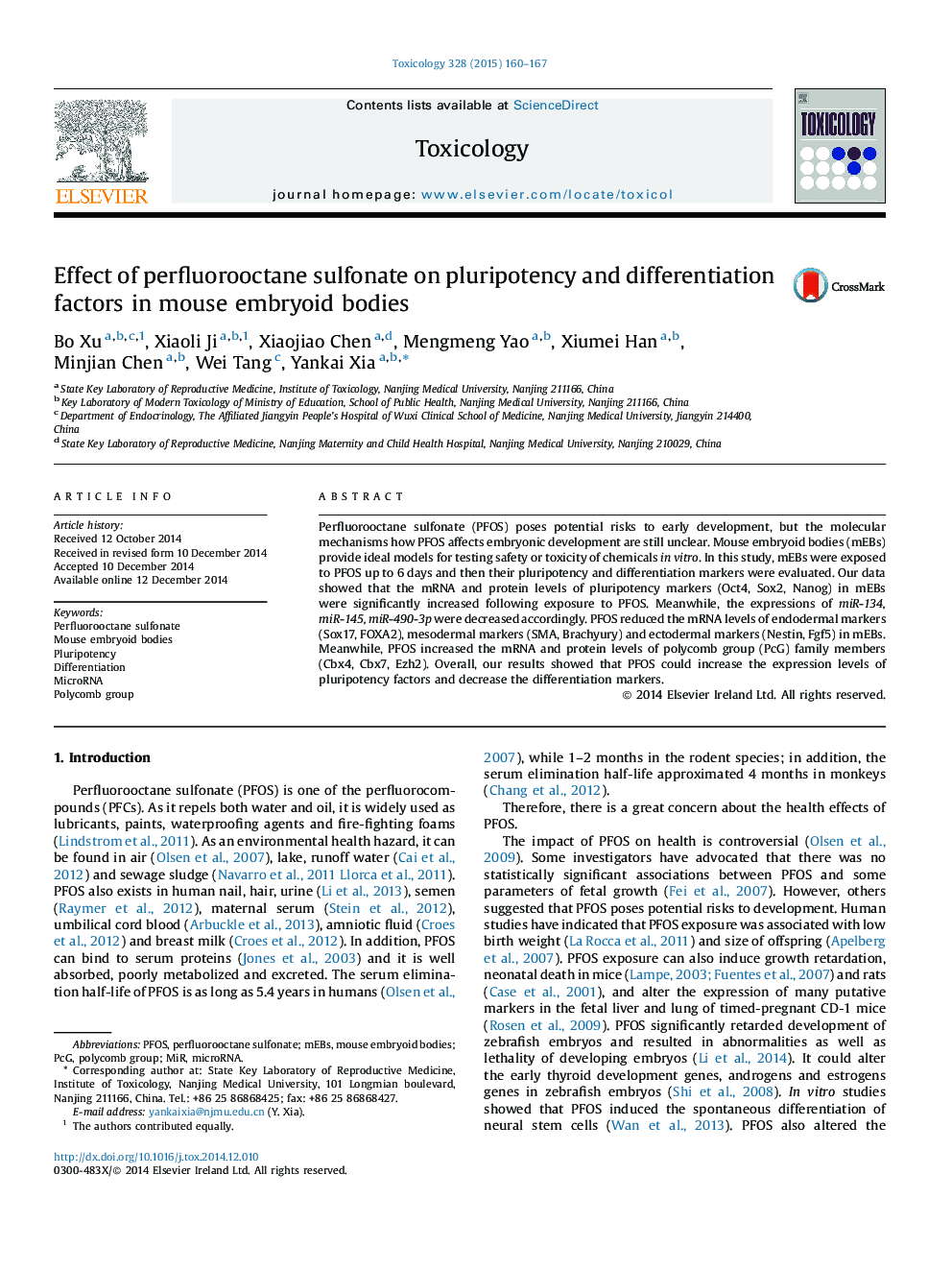| Article ID | Journal | Published Year | Pages | File Type |
|---|---|---|---|---|
| 5859129 | Toxicology | 2015 | 8 Pages |
Abstract
Perfluorooctane sulfonate (PFOS) poses potential risks to early development, but the molecular mechanisms how PFOS affects embryonic development are still unclear. Mouse embryoid bodies (mEBs) provide ideal models for testing safety or toxicity of chemicals in vitro. In this study, mEBs were exposed to PFOS up to 6 days and then their pluripotency and differentiation markers were evaluated. Our data showed that the mRNA and protein levels of pluripotency markers (Oct4, Sox2, Nanog) in mEBs were significantly increased following exposure to PFOS. Meanwhile, the expressions of miR-134, miR-145, miR-490-3p were decreased accordingly. PFOS reduced the mRNA levels of endodermal markers (Sox17, FOXA2), mesodermal markers (SMA, Brachyury) and ectodermal markers (Nestin, Fgf5) in mEBs. Meanwhile, PFOS increased the mRNA and protein levels of polycomb group (PcG) family members (Cbx4, Cbx7, Ezh2). Overall, our results showed that PFOS could increase the expression levels of pluripotency factors and decrease the differentiation markers.
Keywords
Related Topics
Life Sciences
Environmental Science
Health, Toxicology and Mutagenesis
Authors
Bo Xu, Xiaoli Ji, Xiaojiao Chen, Mengmeng Yao, Xiumei Han, Minjian Chen, Wei Tang, Yankai Xia,
